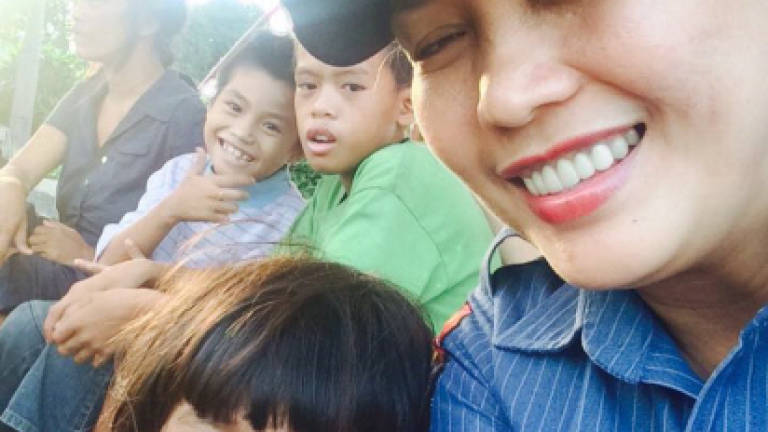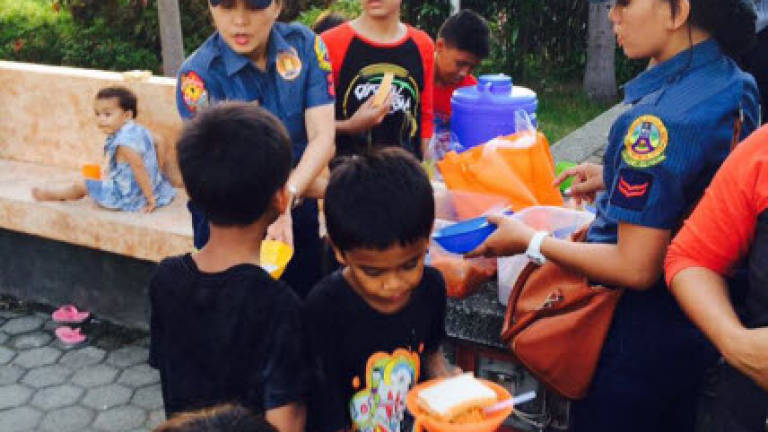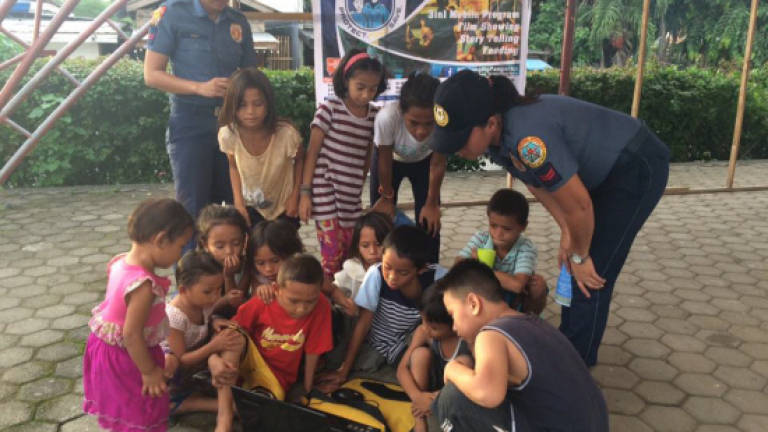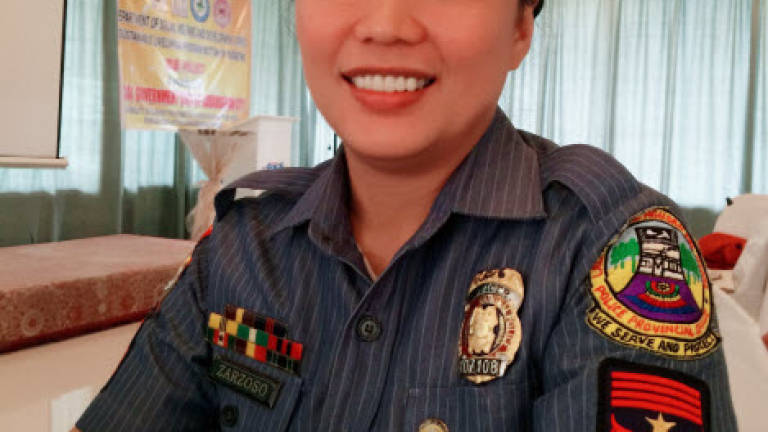Big mama to the kids




CHILDREN committing crime used to be a common sight in Cabadbaran, Agusan del Norte, in the Philippines.
“Almost every day, there [was] an incident involving children for simple theft, truancy, robbery, etc,” says senior police officer Tejanne Quilay Zarzoso, 42, in an email interview.
She and her team of police officers would arrest these children, who were then referred to a social welfare officer and later returned to their parents.
But very soon, the same children were back on the streets, committing crimes again.
“It was frustrating, and the problems [seemed] to be endless,” recalls Zarzoso.
In 2001, the situation started to change. It all began with Zarzoso being chosen to attend a special training programme for law enforcement officers in Manila, sponsored by the United Nations Children’s Fund (Unicef).
One of the highlights of the training programme was Juvenile Justice, where she met a youngster who was jailed for years just for stealing a kilo of fish.
This incident, and the programme itself, opened her eyes to the plight of children who are in conflict with the law and it ignited her passion to help them in any way she can.
“I see them not as suspects but victims,” she says.
This attitude led her to create a project called Protect Feed Save, where she and her team have created activities and programmes just for the street children.
“My approach is now focused on preventive and rehabilitative measures, and no longer the punitive ones,” she says.
The team has conducted medical and dental programmes for the children, and also got religious leaders to be involved to teach good values to the youngsters.
The team has also provided the children with alternative learning options. This encouraged some of these children to go back to school to continue their studies. Today, most of them have graduated from high school.
Zarzoso related one of their success stories: a young man named George Manulat who, as a child, was arrested for committing crimes several times.
Now, he has graduated high school, and dreams of becoming a police officer just like her.
“My ultimate aim for this project is for it to produce more [youngsters like] George, not just here in my [region] but [also] throughout the Philippines and beyond,” she says.
“I believe there is goodness in every child and we just have to give each one a little love.”
One of the team’s main focus is to feed these children, which it has managed to do, thanks to help from the Social Welfare and Development Office as well as private donors.
“To those who want to know the kids better, the first step is to start through their mouths,” Zarzoso explains.
“Feed these children, because they need it the most. One of the push factors why they go to the streets and commit crimes is the lack of food in their homes and the pain of hunger.”
She also cites another reason why the children ended up in the street and turned to crime – a lack of parental guidance.
“In today’s society where both parents go out and work for a living, the needs of our children are neglected,” she says.
“I am not talking about the need for material things but the need for love, guidance and presence.
“With the community’s help, hopefully, they too can enjoy the same privileges as other children who have functional families.”
The biggest challenge Zarzoso faces in running this project is actually getting the trust of these children and maintaining it.
From time to time, she finds some of the children returning to their old ways.
“I am still a police officer and I have to balance between enforcing the law and helping these children overcome their vices, and overcome their personal guilt.
“Most of the children have a low self-esteem and [eventually], it is destroying them.”
This mother of three is also a champion of women and children’s rights.
When not investigating cases, Zarzoso is in her community teaching children and women about their rights, educating the community about drug abuse and trafficking, as well as disseminating crime prevention tips.
For her efforts, Zarzoso was named one of the 10 outstanding policewomen of the Philippines in 2003 and one of Metrobank Foundation’s country’s outstanding police officers in service (COPS) in 2006.
“I started out as a reluctant police officer,” Zarzoso says.
She is a graduate with a bachelor of science degree in food technology and even worked for six months in a food manufacturing company.
She became a police officer while waiting for a more suitable job related to what she’d studied.
But when she started working with women and children, she felt a satisfaction in her life and decided to continue as a police officer.
“I did not even notice that I’ve [spent] 20 years in the service last August,” she says.